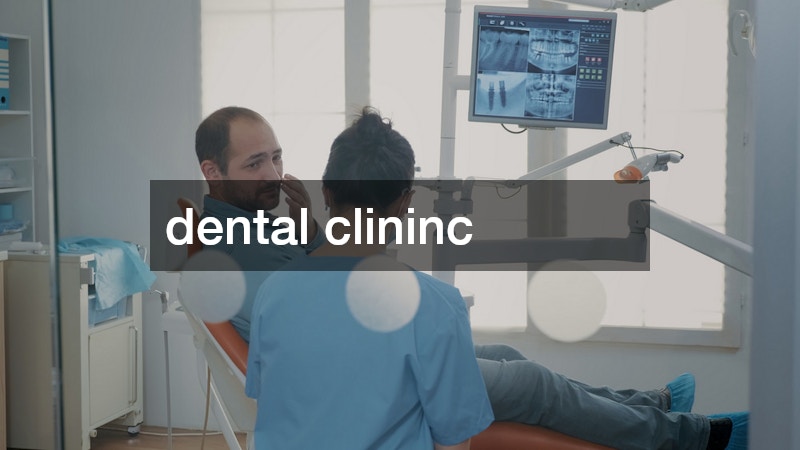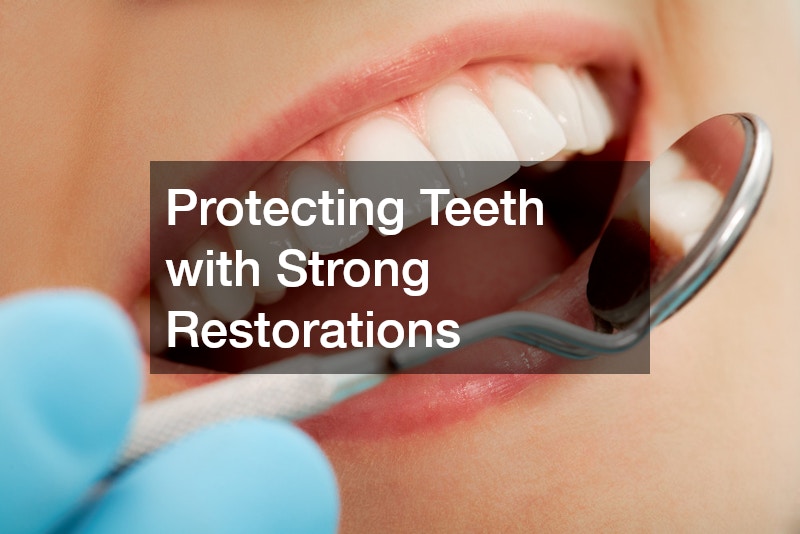Oral care is a vital aspect of maintaining overall health and well-being, encompassing a broad spectrum of practices that ensure our teeth, gums, and mouth remain in optimal condition. Many people underestimate the importance of regular visits and preventive measures that can avert serious issues later on. This comprehensive guide explores effective strategies for long-term oral care, focusing on professional support, family-centered approaches, innovative treatments, and modern restorative techniques that help protect both function and appearance over time.

Adopting a Preventive Approach to Care
A preventative approach to care is essential for keeping your oral health in check and avoiding unnecessary treatments down the line. Dental clinics emphasize routine check-ups that can detect early signs of decay or gum disease, which are often manageable when caught early. Equipping patients with knowledge on proper oral hygiene and regular visits boosts their ability to maintain healthy teeth and gums.
In a typical dental clinic, the staff works diligently to create an environment where patients feel comfortable while receiving essential preventive services. This includes professional cleanings, fluoride treatments, and education on effective brushing and flossing techniques that the whole family, including children, can practice. Regular visits not only help in preventing dental issues but also create a strong relationship with your dentist, which is critical long-term.
Investing time in preventive oral care pays dividends in the long run. Conditions that may seem trivial can escalate, leading to costly procedures such as tooth replacement or complex restorative dentistry. By fostering a relationship with a reputable dental clinic dedicated to preventive care, individuals can enjoy healthy, beautiful smiles for a lifetime.
Addressing Needs at Every Stage of Life
Oral care is a lifelong journey, and it is crucial to adapt our approaches depending on age and specific dental needs. The role of a childrens dentist is paramount in this regard, ensuring that young patients receive the best foundational care for their developing teeth. By introducing children to friendly dental experiences, a children’s dentist can alleviate fears and instill beneficial habits early on.
From the onset of teething to the eventual loss of baby teeth, children’s dental health requires specialized attention that a childrens dentist is trained to provide. By focusing on preventative measures, educating parents and guardians, and addressing issues like cavities as they arise, children’s dentists help form the building blocks for lifelong oral health. Additionally, monitoring the growth of adult teeth allows for early intervention should any misalignments occur.
As individuals transition into adulthood, their dental needs continue to evolve, necessitating the roles of general dentists and specialists like orthodontists and cosmetic dentists. Encouraging life-long visits to the dentist helps ensure that issues typically associated with aging, such as gum disease or tooth replacement, are managed effectively. This comprehensive care approach at every stage enables individuals to maintain optimal oral health and a confident smile.
Ensuring Quality Behind the Scenes
Behind every successful dental procedure is a robust support system provided by local dental labs. These facilities play a crucial role in fabricating custom dental restorations, ensuring that patients receive the highest quality results from their treatments. By integrating advancements in technology and materials, local dental labs can enhance the precision and durability of solutions, such as crowns and bridges.
Quality control is another critical aspect of local dental labs. Ensuring that materials are up to industry standards is key in providing reliable restorations that meet each patient’s unique dental profile. By working closely with dental clinics and professionals, local dental labs can provide tailored services that cater to the diverse needs of individuals looking for effective oral care solutions.
The collaboration between dentists and dental labs can significantly influence the success of treatments, especially concerning complex procedures such as restorative dentistry. Whether it’s crafting composite dental fillings or custom dental crowns, the level of craftsmanship and expertise found in local dental labs is essential. Thus, patients should feel confident knowing that their dental health is backed by a firm foundation of quality craftsmanship.

Replacing What is Lost
One of the critical aspects of oral care is effectively addressing tooth loss through modern solutions like tooth replacement options. Today, dental clinics offer various strategies to restore function and aesthetics, including dental implants, bridges, and dentures. Dental implants, in particular, have gained popularity due to their natural appearance and functionality.
Selecting the right tooth replacement solution hinges on various factors, such as the patient’s overall health, the condition of surrounding teeth, and individual preferences. Dentists can provide valuable insight into the advantages and limitations of each option to ensure an informed decision is made. With the right restorative procedure, patients can regain their smile, improve chewing function, and boost their confidence.
Moreover, ongoing advancements in dental technology have made tooth replacement procedures more efficient and less invasive. Techniques involving guided implant placement, for instance, reduce surgery time and enhance recovery periods. Understanding these advanced tooth replacement solutions enables patients to make informed choices regarding their oral health journeys.
Enhancing the Aesthetic Dimension
Aesthetic considerations play a significant role in the overall satisfaction of dental procedures. The expertise of a cosmetic dentist can help enhance the beauty of your smile through various techniques. Options like professional whitening, veneers, and tooth bonding are commonly employed by cosmetic dentists to address aesthetic concerns.
In recent years, the demand for cosmetic dentistry has surged as individuals seek to enhance their smiles and boost their self-esteem. The impact of a beautiful smile can extend beyond personal satisfaction, influencing social interactions and professional opportunities. Therefore, working with a skilled cosmetic dentist can significantly improve not just appearance but also quality of life.
Additionally, the integration of advanced technology means that techniques such as digital smile design allow patients to preview potential outcomes before the actual procedure. This innovation streamlines communication between the patient and dentist, ensuring that aesthetic goals align with cosmetic capabilities. By effectively addressing both health and aesthetics, cosmetic dentistry represents a harmonious blend of art and science.
Repairing Damage with Modern Solutions
Accidents and everyday wear can lead to dental damage that requires swift intervention. The availability of composite dental fillings provides patients with an effective method of repairing cavities while blending seamlessly with their natural teeth. This innovative option allows dentists to restore form and function without compromising aesthetics.
Composite fillings outperform traditional amalgam fillings in various respects, especially in terms of appearance and adaptability. These fillings can be customized to match the color and texture of surrounding teeth, providing a more natural-looking solution. Additionally, composite materials bond directly to the tooth structure, promoting reinforcement and reducing the chances of further damage.
Modern restorative practices continue to evolve, offering various techniques and materials to repair dental damage effectively. With the continuous research and development in the field of dentistry, patients facing issues like chips or fractures can achieve lasting results. The importance of addressing these problems promptly cannot be overstated, as timely repairs help maintain oral function and health.

Protecting Teeth with Strong Restorations
Dental crowns are a vital solution in restorative dentistry, serving as protective caps placed over damaged or weakened teeth. These crowns can restore strength and functionality to compromised teeth and enhance the aesthetic appeal of a smile. By choosing quality materials and skilled practitioners, patients can expect long-lasting results from crown placement.
One of the advantages of dental crowns is their versatility, making them suitable for various applications, whether to protect weak teeth, cover implants, or support bridges. Furthermore, the integration of materials like porcelain and zirconia ensures that crowns blend aesthetically with natural teeth while providing durability. Regular consultations with your dental practitioner can help determine when crown placement is appropriate to maintain oral health.
Moreover, understanding the types of crowns available informs patients of their options and aids in making informed choices. Continuous advancements in materials and techniques result in crowns that not only mimic natural teeth but also ensure strength and longevity. As a result, patients can enjoy both protective measures and aesthetic harmony for their smiles.
Restoring Function and Comfort
Restorative dentistry encompasses a range of procedures designed to restore function and comfort to patients experiencing dental issues. The goal is to enhance the quality of life by addressing damaged or missing teeth, ensuring individuals can eat, speak, and smile without discomfort. By working closely with experienced professionals, patients can explore their numerous restorative options.
Among the myriad of restorative treatments available, dentures, implants, and crowns all cater to the varying needs and preferences of individuals dealing with tooth loss. Restorative dentistry not only focuses on immediate solutions but also emphasizes long-term oral health by restoring proper bite alignment and function. This comprehensive approach helps prevent future dental issues and enhances overall well-being.
Moreover, advancements in dental technology have led to improved techniques, resulting in quicker procedures, reduced downtime, and enhanced patient satisfaction. For instance, digital imaging and 3D printing facilitate precise restorations tailored to individual needs, while minimally invasive techniques can alleviate patient anxiety. By keeping up with these innovations, patients can make educated choices and achieve optimal results from their restorative care.
Straightening Smiles Discreetly
For many individuals seeking orthodontic treatment, discretion is of utmost importance. Invisible braces for teeth offer a solution that allows patients to correct misalignment without the noticeable appearance of traditional metal braces. This orthodontic option is particularly favored by adults and teens who require flexibility and comfort alongside aesthetic considerations.
The technology behind invisible braces has evolved significantly, utilizing clear aligner systems that apply gradual pressure to shift teeth into desirable positions. Patients can enjoy the convenience of removable aligners, making it easier to maintain their oral hygiene routines without the complications associated with braces. Additionally, the aligners are custom-fitted, ensuring a comfortable and effective treatment journey.
Consultation with an orthodontist specializing in invisible braces can provide valuable insights into the best path for achieving desired results. Regular follow-ups ensure proper tracking of progress, allowing for adjustments as needed to facilitate optimal outcomes. With advancements in orthodontics, patients can experience confident smiles while navigating their daily lives without the challenges of traditional braces.

Managing Anxiety and Comfort
Dental anxiety is a common issue that affects many individuals, inhibiting their willingness to seek necessary oral care. Sedation dentists are specially trained to provide a calming experience for anxious patients, helping eliminate fears associated with dental visits. Through various sedation options, from nitrous oxide to oral sedation, patients are made more comfortable during procedures.
The importance of managing dental anxiety through sedation cannot be overstated, as it allows individuals to receive crucial treatments without the emotional strain often associated with dental procedures. This is vital, especially in more extensive procedures like tooth replacement or restorative work that may otherwise feel overwhelming. Patients can also benefit from discussing their concerns openly with sedation dentists, ensuring that their specific needs are addressed.
In addition, a comfortable dental clinic environment can contribute significantly to reducing patient anxiety. Many practices are now designed with comfort in mind, offering amenities and technologies that help patients feel safe and focused during their visits. By combining an empathetic approach with effective sedation techniques, dental professionals can make the experience as pleasant as possible, ensuring patients receive the care they need.
Effective oral care is a multifaceted journey that requires attention to detail, advanced knowledge, and a commitment to preventive practices. From the foundational support of dental clinics and children’s dentists to the transformative work of cosmetic and restorative dentists, every aspect plays an integral role in maintaining oral health. Constant advancements in dental technology mean that patients can benefit from innovative solutions like dental crowns, tooth replacement options, and invisible braces for teeth, making strides in aesthetics and function.
Furthermore, understanding the importance of managing anxiety through sedation dentists highlights the compassionate side of dentistry, ensuring that everyone can access necessary care without fear. Collaboration among dental professionals, local dental labs, and patients can yield outstanding outcomes in achieving and maintaining healthy, confident smiles. Ultimately, prioritizing oral health is an investment in overall well-being, enhancing both quality of life and self-esteem.
It is paramount for individuals to maintain regular dental visits and stay informed about their options for optimal dental care. Embracing a comprehensive approach to oral care ensures that every stage of life is met with appropriate support, keeping smiles bright and healthy for years to come.




